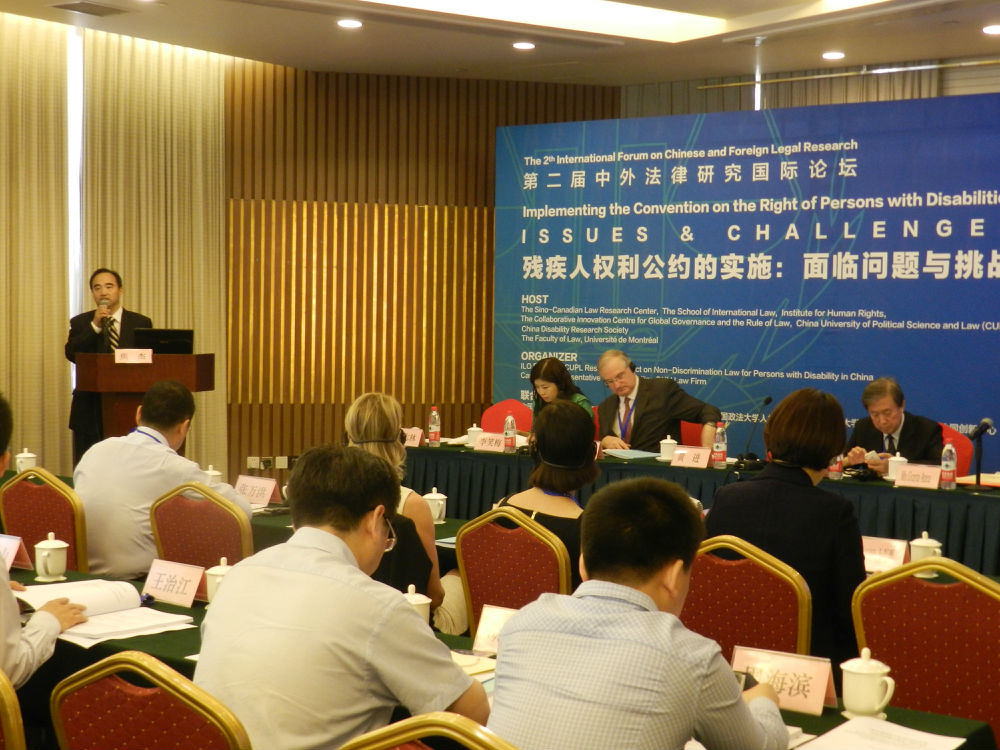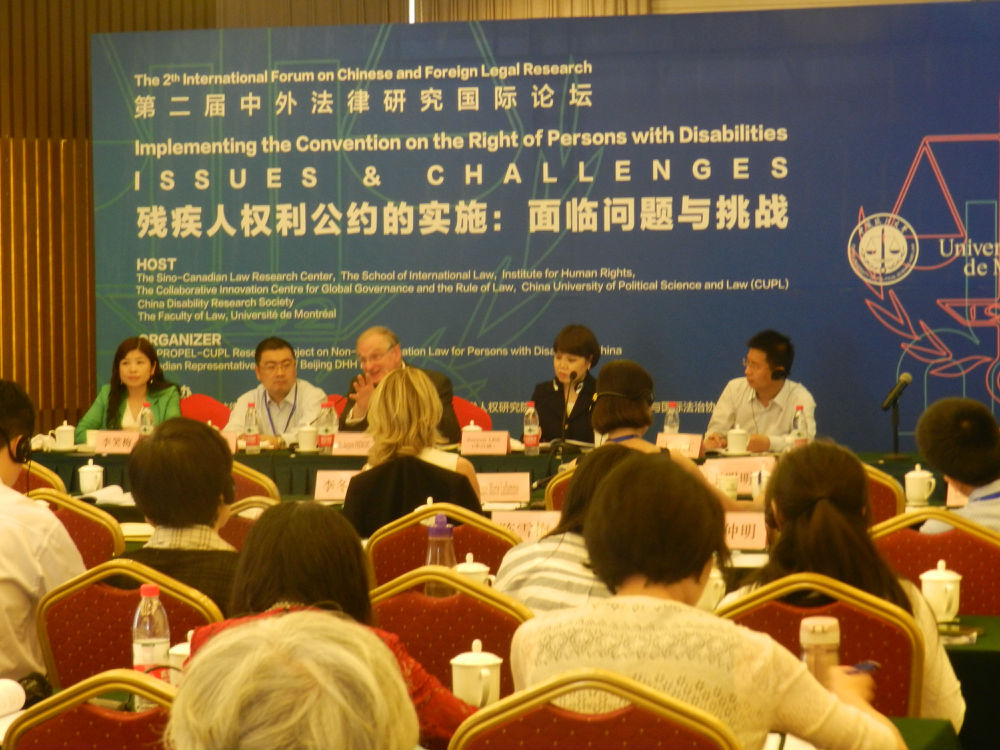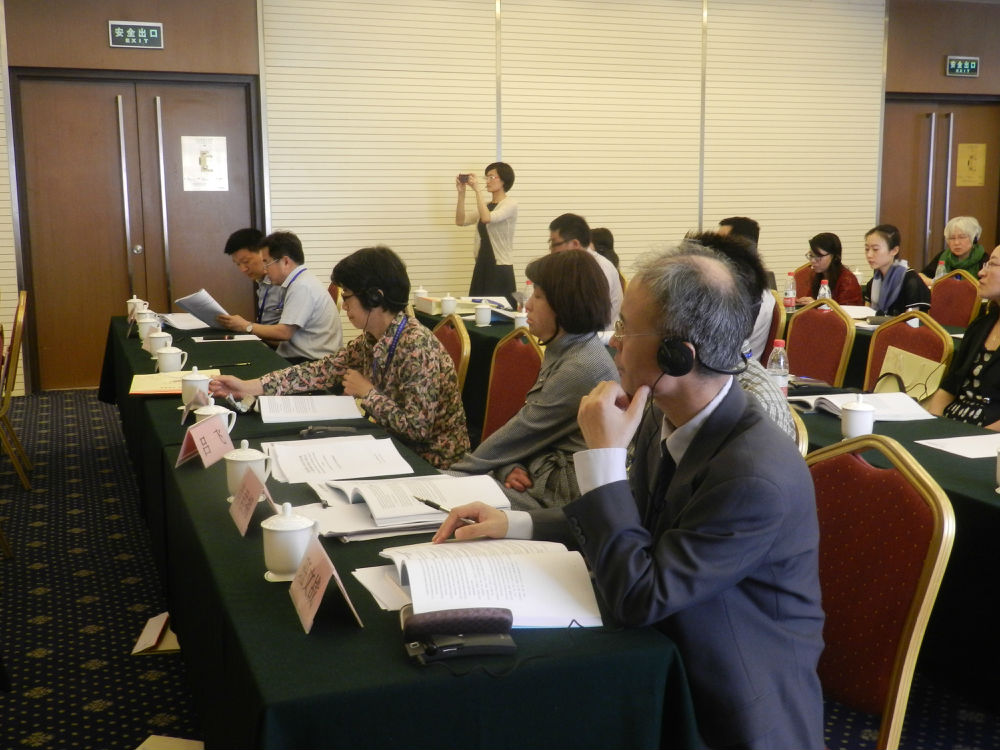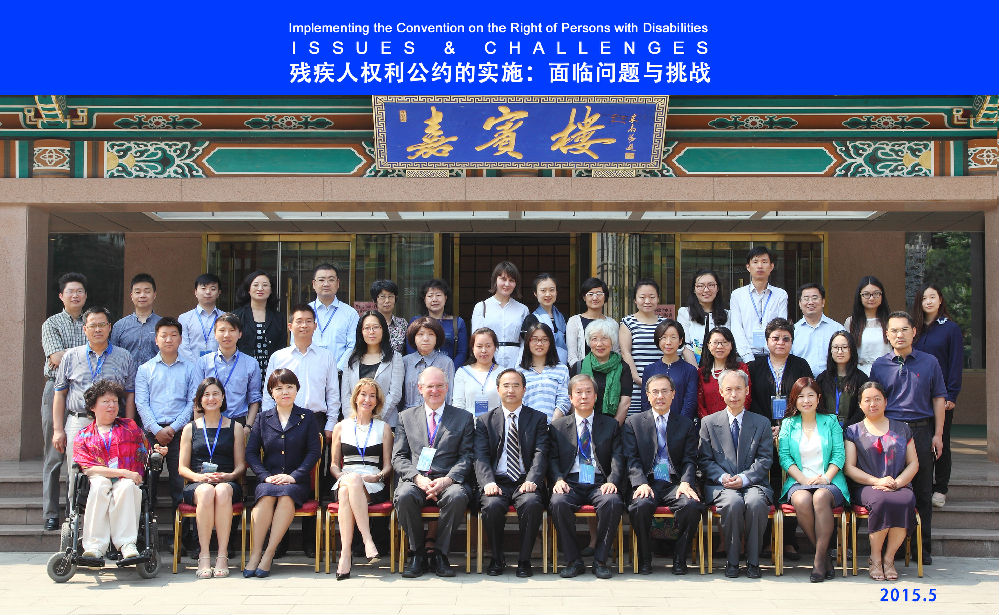May 23-24, 2015 – the International Forum on the Challenges in Respect to the execution and Implementation of the United Nations Convention on the Rights of Persons with Disabilities took place in Beijing.
The organizing parties of the forum include: the Sino-Canadian Law Research Center, Faculty of International Law, Institute for Human Rights, China University of Political Science and Law (CUPL) with the China Disability Research Society and the Faculty of Law, University of de Montreal.
The majority of the participants represented the scholar circles from China, Canada, United States, South Korea, EU, and UN agencies in China. Besides, representatives of both governmental and non-governmental organizations took part in the Forum.
The Forum opened with a welcoming speech from the Chairman - Prof. Jiao Jie, Faculty of International Law at CUPL.
The floor was given to the distinguished speakers.
Prof. Huang Jin, Dean of CUPL, reminded the audience of the human rights progress that the CUPL' s Institute for Human Rights, in particular, as one of the first human rights research center in China, had achieved in the past decades in promotion of democracy, social harmony and the rule of law.

Prof. Chen Xinmin, China Disabled Person’s Federation, talked about the engagement of his organisation into the drafting of the legislation and implementation of its provisions. He also gave an overview of current practical challenges facing disability rights implementation in China.
Prof. Jacques Fremont, Quebec Human Rights and Youth Rights Commission, specified these challenges as financial costs, systemic discrimination and change of the dominant culture, which set a tone for the conference.
The work of the Forum was organized in threesecessions focusing on the following themes:
Implementation of the CRPD
The issue was addressed from different international perspectives.
The Chinese views on the CRPD implementation were introduced by Mr. Wang Zhijiang, China Disabled Person’s Federation, and Prof. Zhang Wanhon, Wuhan University. Mr. Wang talked about the current reporting and reviewing mechanisms undertaken by China in accordance with the Convention, and associated challenges. Prof. Zhang presented a multi disciplinary approach to understanding and implementing of disabled persons’ rights.
The relevant practice from the Quebec provinceof Canada was shared by Prof. Fremont, who addressed such issues as the need to define responsibilities, ensure litigation, as well as different definitions and, thus, perceptions of disability, unseen discrimination of the disabled, cultural attitude, expenses associated with special facilities.
The Korean experience in implementing the CRPD was presented by Prof. Seryon Lee, Chonbuk National University School of Law. She focused on the issues of disability definition and assessment, related data collection, and gender specification in relation to disability discrimination.

Rights of Persons with Disabilities in the Workplace
The variety of views on the problem was shared by experts, representing different parts of the world and different areas of professional engagement.
Particularly, Gunta Anca, European Disability Forum, and Prof. Anne-Marie Laflamme, Laval University in Canada, shared their views on practical implementation of legal standards applicable to disability rights in the workplace from the European and Canadian perspectives respectively.
Prof. Ye Jingyi, Peking University, talked about the implementation of anti-discrimination system in the employment of persons with disabilities in China, focusing on such question as the current quota system and reasonable accommodation as state duties.
The International Labour Organisation was presented by Tim de Meyer, Director China and Mongolia Office. He talked about the work of the ILO in China, particularly the efforts to promote decent employment for persons with disabilities through such thematic programs as PROPEL (Promoting rights and opportunities for people with disabilities in employment through legislation).
Representing a Chinese NGO, Mr. Fu Gaoshan, One-plus-one Disabled Cultural Development Center, introduced an approach to achieving inclusive and equal employment for persons with disabilities in China.

Current Issues in Implementing Disability Rights
The major part of the section was devoted to issues related to the right to education of persons with disabilities. Particularly, Prof. Robert Dinerstein, American University, Washington Collegeof Law, shared his approach to developing a disability rights teaching agenda. He specifically focused on clinical disability course, which is part of his specialization, to talk about advantages of such education.
Prof. Fremont and Prof. Kelley Loper, Faculty of Law of the University of Hongkong, addressed the issue of inclusive education for children. Prof. Fremont talked about the Quebec experience in implementing the right to education for children with special needs. Prof. Kelley specifically focused on Article 24 of the CRPD and analyzed its provisions in relation to other international human rights law instruments.
Another important issue brought about by thespeakers regards socialization of persons with disabilities. Mr. Tan Zhilin, Centrefor Policy Studies, Ministry of Civil Affairs of P.R. China, talked about Chinese perspectives on implementation of socialization rights and relevant methods. Particularly, he emphasized the importance of social inclusion over socialintegration for the disabled.
Finally, Mr. Xiao Junyong, Faculty of International relations of CUPL, gave a detailed overview of the CRPD implementation models in China in accordance to the CRPD’s Article 33.
Each section of the Forum concluded with questions and comments from the audience, which prompted the speakers to elaborate on their views in respective subjects.
In his closing speech, Prof. Kong Qingjiang, Director of the Faculty of International Law of CUPL, summarized the mainchallenges in the CRPD implementation identified by most speakers at the Forumas following: harmonization of the CRPD and domestic legislation, allocation of funds and resources, change of mindset in the society.
